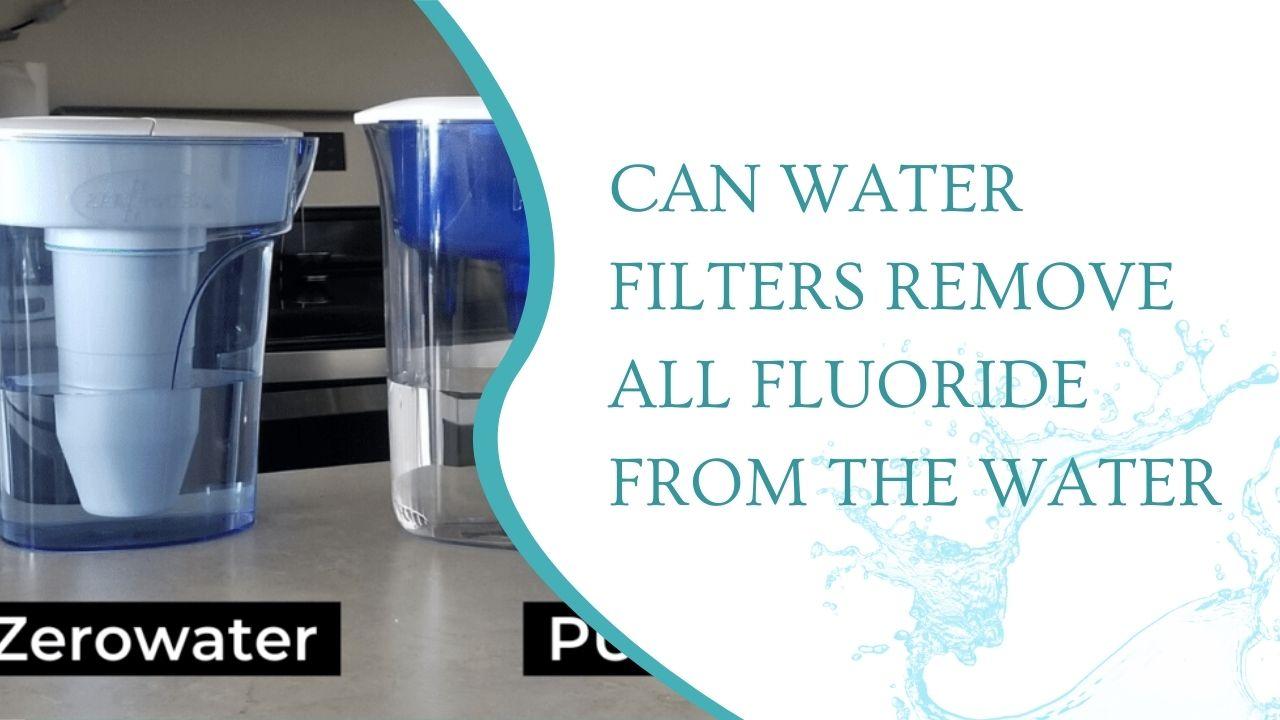Can Water Filters Remove All Fluoride from the Water? Water quality is a vital aspect of our overall well-being, and ensuring clean and safe drinking water is of utmost importance. One particular concern that arises when it comes to water quality is the presence of fluoride. While fluoride can have dental benefits, excessive consumption of fluoride may lead to health issues. Therefore, many individuals are interested in finding effective ways to remove fluoride from their water sources. We will explore the topic of whether water filters can remove all fluoride from the water.
Water plays a crucial role in our daily lives, and the quality of the filtered water dispenser we consume directly impacts our health. Fluoride, a naturally occurring mineral, is often present in water sources to some extent. While fluoride can help prevent tooth decay, excessive exposure to fluoride may lead to dental fluorosis, skeletal fluorosis, and other health concerns. As a result, individuals may seek methods to reduce fluoride levels in their drinking water.
Understanding Fluoride
Fluoride is a chemical compound that contains the element fluorine. It can naturally occur in water from various sources, such as rocks and soil. Additionally, fluoride may be added to public water supplies as a public health measure to improve dental health. However, not all water sources contain optimal levels of fluoride, and some individuals may prefer to reduce fluoride intake due to personal preferences or specific health concerns.
Water Filtration Methods
Water filters are commonly used to improve water quality by removing impurities and unwanted substances. When it comes to fluoride removal, certain types of water filters have shown effectiveness. One of the most reliable options is a reverse osmosis filter. This filtration method uses a semipermeable membrane to remove fluoride and other contaminants. Activated alumina filters can also effectively reduce fluoride levels in water. Distillation filters, which involve the process of vaporizing water and condensing it, can also help remove fluoride.
Limitations of Water Filters
It’s important to note that the effectiveness of water filters in removing fluoride can vary. Factors such as the quality of the filter, water flow rate, and the initial fluoride concentration in the water can influence the filtration process. Additionally, regular maintenance and replacement of filter cartridges are necessary to ensure optimal performance. Considering these factors, it’s essential to choose a water filter that specifically mentions fluoride removal as one of its features.
Alternatives to Water Filters
If using a water filter is not a feasible option, there are alternative ways to reduce fluoride exposure. Bottled water brands that specifically state “fluoride-free” can be chosen as an alternative to tap water. It’s important to check the labels and verify the fluoride content before purchasing. Additionally, some communities practice water fluoridation, which involves adjusting the fluoride levels in public water supplies. In such cases, alternative water sources or treatment methods can be explored.
FAQs
1. Can water filters completely remove all fluoride from the water?
Water filters, such as reverse osmosis and activated alumina filters, have demonstrated effectiveness in reducing fluoride levels in water. However, the complete removal of fluoride may depend on factors such as the quality of the filter and the initial fluoride concentration in the water.
2. How often should I replace the filter cartridges in my water filter?
The frequency of replacing filter cartridges varies depending on the specific water filter model and the volume of water filtered. It is important to follow the manufacturer’s instructions and recommendations for filter replacement to maintain optimal performance.
3. Are there any health risks associated with excessive fluoride consumption?
Excessive fluoride consumption can lead to dental fluorosis, which affects the appearance and strength of tooth enamel. In severe cases, excessive fluoride intake can also cause skeletal fluorosis, which affects the bones. It is important to maintain a balanced fluoride intake within recommended limits for optimal dental health.
4. Can I rely on bottled water labeled as “fluoride-free” to avoid fluoride exposure?
Bottled water labeled as “fluoride-free” can be chosen as an alternative to tap water to reduce fluoride exposure. However, it is essential to check the labels and verify the fluoride content to ensure it meets your specific requirements.
5. Is water fluoridation a reliable method for maintaining dental health?
Water fluoridation is a public health measure aimed at improving dental health by adjusting fluoride levels in public water supplies. It has been widely recognized as a safe and effective method for preventing tooth
Conclusion
When it comes to removing fluoride from water, water filters can be effective tools. Reverse osmosis filters, activated alumina filters, and distillation filters have shown promising results in reducing fluoride levels. However, it’s crucial to consider the limitations of water filters, such as variations in effectiveness and maintenance requirements. Alternatives such as fluoride-free bottled water or exploring community water fluoridation practices can also provide options for those seeking to reduce fluoride exposure. Ultimately, choosing the right water filtration method should be based on individual needs and preferences, while considering overall water quality.

